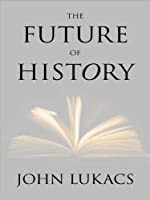History, as I have argued, is (and was, and will be) more than the recorded past; but the remembered past, too, is variable and imperfect, smaller as it is than the entire past.
Americans need what Niebuhr described as “a sense of modesty about the virtue, wisdom and power available to us for the resolution of [history’s] perplexities.”
You can have bipolarity without war. You can even have bipolarity without a cold war. That’s because the original Cold War was triggered by international tensions of a kind difficult to imagine today.
Ann-ping Chin, Trevor Ling, Joseph Needham, and Alan W. Watts—and Lao Tzu—show us the more ecological mode of thought prevalent in the East.
So self-betrayal —this act of violating my own sensibilities toward another person—causes me to see that person or persons differently, and not only them but myself and the world also. When I ignore a sense to apologize to my son, for example, I might start telling myself that he’s really the one who needs to apologize, or that he’s a pain in the backside, or that if I apologize, he’ll just take it as license to do what he wants.
Paul longed for his fellows to be “spiritual people,” to know of their union, to live from the mystery of their “twoness,” as the psychologist of religion, Jeffrey Kripal, calls it: there’s a conscious part of us that is “merely human” in space and time, living an individual life; and part of us of which we can become more conscious that is “spiritual,” outside of space and time, sharing in the mind of God.
While uncertainty can quite reasonably provoke fear— fear of the unknown— it can also give us grounds for hope, because it creates a mental space in which we can imagine positive possibilities.
What the Constitution of Knowledge does not allow is treating criticism, offense, or emotional impact as equivalent to physical violence, or protection from emotionally hurtful expression as a right.








